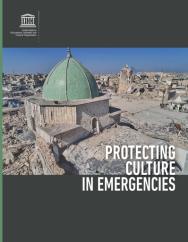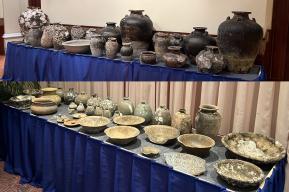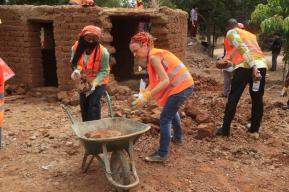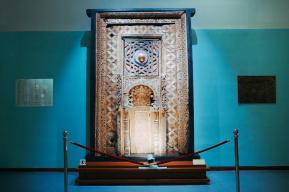
Safeguarding Culture in Times of Crisis
In an armed conflict or disaster situation, culture is particularly at risk, owing to its inherent vulnerability and tremendous symbolic value. At the same time, culture is as a driver of recovery, strengthening the resilience of a community. Through the implementation of its mutually reinforcing Culture Conventions, the United Nations Educational, Scientific, and Cultural Organization (UNESCO) works with the international community to protect culture and promote cultural pluralism in emergency situations, implementing activities in times of civil strife and warfare, as well as in the wake of disasters caused by natural or human-made hazards.
Cultural Heritage & Armed Conflicts
Protecting culture and combatting the crimes have been at the core of UNESCO’s mission since its foundation. In this spirit and on the promise of preservation of heritage for future generations, the Convention for the Protection of Cultural Property in the Event of Armed Conflict and its two Protocols (1954 and 1999) have been adopted under the auspices of UNESCO. Paving the way for the birth of numerous international instruments in the field of culture, the 1954 Hague Convention is a fundamental international instrument for conflict prevention, post-conflict recovery and building the defenses of peace.



Heritage Emergency Fund
Emergency preparedness and response within the domains of the UNESCO Culture Conventions.
Revive the Spirit of Mosul
The city of Mosul, which means "the linking point" in Arabic, is one of the oldest cities in the world. For millennia, it has been a strategic location due to its crossroads and bridge between north and south, east and west. In 2014, a three-year occupation (2014-2017) by ISIL/Daesh was carried out that ended with devastating results and these years passed before the shackles of violent extremism could be broken. Mosul was devastated and the city was left in ruins.
Since February 2018, UNESCO has launched the flagship initiative “Revive the Spirit of Mosul” as a response to the recovery of one of Iraq's iconic cities.
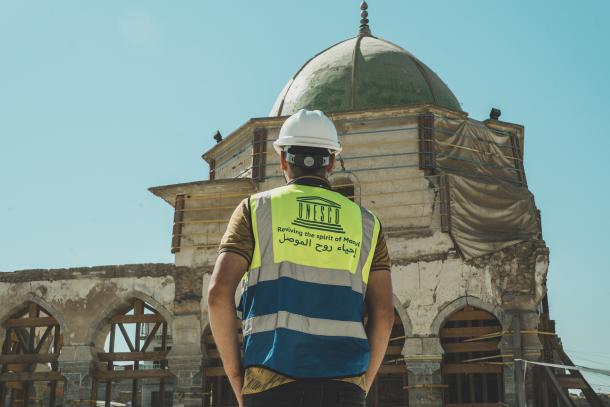
Gaza Strip / Palestine
UNESCO, including its office in Ramallah, is mobilized within the framework of its mandate for education, culture and press freedom.
UNESCO expresses deep concern about the impact of the ongoing conflict on cultural heritage, particularly in the Gaza Strip. While acknowledging the priority given to the humanitarian situation, UNESCO emphasizes the importance of considering the protection of cultural heritage. The organization urges all involved parties to strictly adhere to international law, emphasizing that cultural property should not be targeted or used for military purposes, as it is considered civilian infrastructure.
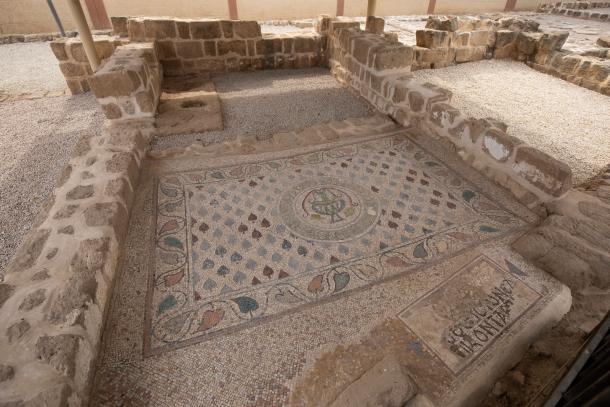
UNESCO's action in Ukraine
As a result of the war in Ukraine, UNESCO has mobilised to denounce violence against journalists, promote the importance and therefore the protection of cultural institutions, and work for the maintenance of education to ensure inclusive and equitable quality education and promote lifelong learning opportunities in Ukraine.
"We must safeguard the cultural heritage in Ukraine, as a testimony of the past but also as a catalyst for peace and cohesion for the future, which the international community has a duty to protect and preserve." Audrey Azoulay, UNESCO Director-General, at the start of the conflict.
LiBeirut
On 4 August 2020, two massive explosions hit the port of Beirut claiming the lives of 220 people, and leaving more than 6,000 injured and 300,000 families homeless. The international community expressed its solidarity with the Lebanese people. Visiting Beirut on 27 August 2020, UNESCO Director-General Audrey Azoulay, launched the LiBeirut (For Beirut) initiative from across the port, an initiative that aims to mobilize the international community to support the reconstruction of the city’s educational and cultural sectors.

Documents
